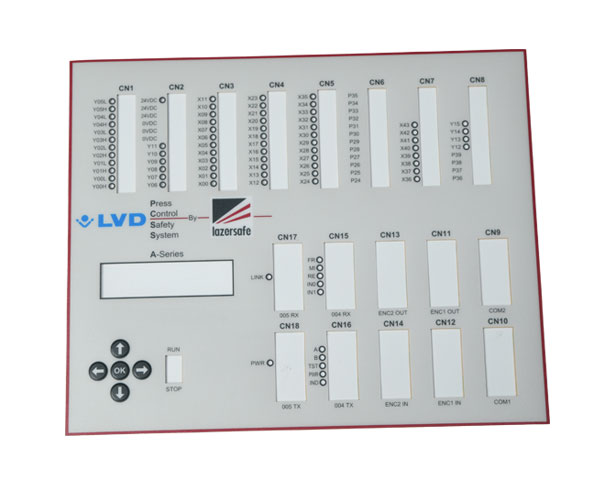Thin film panels,as important carriers of human-machine interfaces,play a crucial role in various industrial equipment,household appliances,and medical devices.Compared to capacitive screens,thin film panels have good physical button feedback,and users can directly confirm the input status by pressing the pressure,making it less prone to accidental touch problems.For industrial control environments with high-frequency operation,mechanical button feel helps reduce operator fatigue.Thin film panels can be flexibly customized in shape and size according to equipment layout,and can adapt to various non-standard equipment enclosures,while capacitive screens usually require a flat structure and are limited by size and shape.
The film panel is more suitable for mass production in terms of cost.The production of facial mask can be completed at one time through silk screen technology to save manufacturing costs.Its manufacturing process allows for the addition of LED transparent areas,windows,logos,functional areas,and other designs on the panel to meet personalized needs.Although capacitive screens support multi touch,their recognition sensitivity is insufficient in some industrial environments or scenarios that require glove operation,while thin film panels are not affected by glove wearing and have higher operational consistency.

From the perspective of durability,thin film panels can be made of materials that are resistant to chemical corrosion,waterproof,and oil stains according to environmental requirements.They can adapt to complex working environments such as humidity,dust,and oil stains for a long time and are easier to maintain.The surface of capacitive screens is mostly made of glass material,which has limited impact resistance and is prone to damage due to impact or scratching with sharp objects.The multi-layer structure design of thin film panels can effectively disperse external impact and reduce the risk of damage.
When used outdoors,thin film panels can be combined with UV resistant materials to delay aging and fading caused by light exposure,while capacitive screens are susceptible to direct light interference,resulting in unclear screen display and affecting the operating experience.For devices that require a simple interface and a small number of button functions,the thin film panel achieves signal input through circuit integration,eliminating the need for tedious main control program design and reducing system complexity.
The installation method of thin film panels is flexible,and various methods such as adhesive and embedded can be used.The layout is flexible according to the product form and is not limited by space.In regular maintenance,the surface of the thin film panel is flat and easy to clean,and can be wiped with alcohol or neutral cleaning agents.However,the capacitive screen needs to avoid contact with some solvents,otherwise it may cause capacitive induction failure.
In summary,thin film panels demonstrate significant advantages in scenarios that require reliable physical buttons,resistance to environmental interference,flexible exterior design,and economical mass production.They are widely used in home appliances,medical instruments,industrial consoles,and other fields,and are an ideal human-machine interaction solution that meets high reliability requirements.